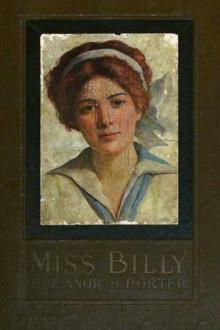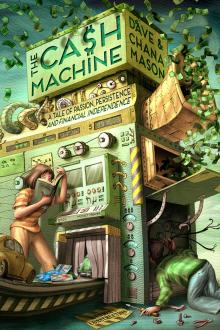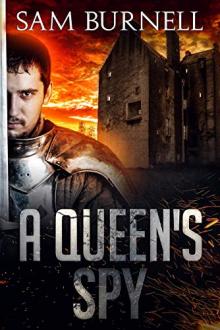Genre Fiction. Page - 200

n air.
In the grill-room of the Mena House we meet the poet Shakib, who was then drawing his inspiration from a glass of whiskey and soda. Nay, he was drowning his sorrows therein, for his Master, alas! has mysteriously disappeared.
"I have not seen him for ten days," said the Poet; "and I know not where he is.--If I did? Ah, my friend, you would not then see me here. Indeed, I should be with him, and though he be in the trap of the Young Turks." And some real tears flowed down the cheeks of the Poet, as he spoke.
The Mena House, a charming little Branch of Civilisation at the gate of the desert, stands, like man himself, in the shadow of two terrible immensities, the Sphinx and the Pyramid, the Origin and the End. And in the grill-room, over a glass of whiskey and soda, we presume to solve in few words the eternal mystery. But that is not what we came for. And to avoid the bewildering depths into which we were led, we suggested a stroll on the sands. Here the Poet waxed more eloquent, an

eave the farm! Rose. }
Rose. If he leaves it, he dies.
Edmunds. This base act, proud man, you shall rue.
Young Benson. Turn him from the farm! From his home will you cast, The old man who has tilled it for years? Ev'ry tree, ev'ry flower, is linked with the past, And a friend of his childhood appears!
Squire. Yes, yes, leave the farm! From his home I will cast The old man who has tilled it for years; Though each tree and flower is linked with the past, And a friend of his childhood appears.
Chorus.
He has turned from his farm! From his home he has cast The old man who has tilled it for years; Though each tree and flower is linked with the past, And a friend of his childhood appears.
QUARTET
Squire. Hear me, when I swear that the farm is your own Through all changes Fortune may make; The base charge of falsehood I never have known; This promise I never will break.
Rose and } He

edwells rather oftener in alleys and by-ways than she does in courtsand palaces, and that it is good, and pleasant, and profitable totrack her out, and follow her. I believe that to lay one's handupon some of those rejected ones whom the world has too longforgotten, and too often misused, and to say to the proudest andmost thoughtless--"These creatures have the same elements andcapacities of goodness as yourselves, they are moulded in the sameform, and made of the same clay; and though ten times worse thanyou, may, in having retained anything of their original natureamidst the trials and distresses of their condition, be really tentimes better;" I believe that to do this is to pursue a worthy andnot useless vocation. Gentlemen, that you think so too, yourfervent greeting sufficiently assures me. That this feeling isalive in the Old World as well as in the New, no man should knowbetter than I--I, who have found such wide and ready sympathy in myown dear land. That in expressing it, we are b

ey wouldn't," she objected. "You don'tknow how noisy I am."
The lawyer stirred restlessly and pondered.
"But, surely, my dear, isn't there some relative, somewhere?" hedemanded. "How about your mother's people?"
Billy shook her head. Her eyes filled again with tears.
There was only Aunt Ella, ever, that I knew anything about. Sheand mother were the only children there were, and mother died whenI was a year old, you know."
"But your father's people?"
"It's even worse there. He was an only child and an orphan whenmother married him. He died when I was but six months old. Afterthat there was only mother and Aunt Ella, then Aunt Ella alone; andnow--no one."
"And you know nothing of your father's people?"
"Nothing; that is--almost nothing."
"Then there is some one?"
Billy smiled. A deeper pink showed in her cheeks.
"Why, there's one--a man but he isn't really father's people,anyway. But I--I have been tempted to write to him."
"Who is he?"
"The one I'm named

ceiving that it is something unusually lively, kicksand crows most lustily, to the unspeakable delight of all thechildren and both the parents: and the dinner is borne into thehouse amidst a shouting of small voices, and jumping of fat legs,which would fill Sir Andrew Agnew with astonishment; as well itmight, seeing that Baronets, generally speaking, eat prettycomfortable dinners all the week through, and cannot be expected tounderstand what people feel, who only have a meat dinner on one dayout of every seven.
The bakings being all duly consigned to their respective owners,and the beer-man having gone his rounds, the church bells ring forafternoon service, the shops are again closed, and the streets aremore than ever thronged with people; some who have not been tochurch in the morning, going to it now; others who have been tochurch, going out for a walk; and others--let us admit the fullmeasure of their guilt--going for a walk, who have not been tochurch at all. I am afraid the smart serv

d after exchanging his rough coat forsome more suitable attire (in which however he loses nothing of theout-and-outer), gets into the coach and grumbles all the way at hisown good nature: his bitter reflections aggravated by therecollection, that Tom Smith has taken the chair at a littleimpromptu dinner at a fighting man's, and that a set-to was to takeplace on a dining-table, between the fighting man and his brother-in-law, which is probably 'coming off' at that very instant.
As the out-and-out young gentleman is by no means at his ease inladies' society, he shrinks into a corner of the drawing-room whenthey reach the friend's, and unless one of his sisters is kindenough to talk to him, remains there without being much troubled bythe attentions of other people, until he espies, lingering outsidethe door, another gentleman, whom he at once knows, by his air andmanner (for there is a kind of free-masonry in the craft), to be abrother out-and-outer, and towards whom he accordingly makes hiswa

by the presence of certain immovable facts. Just what he wanted, Presley hardly knew. On one hand, it was his ambition to portray life as he saw it--directly, frankly, and through no medium of personality or temperament. But, on the other hand, as well, he wished to see everything through a rose-coloured mist--a mist that dulled all harsh outlines, all crude and violent colours. He told himself that, as a part of the people, he loved the people and sympathised with their hopes and fears, and joys and griefs; and yet Hooven, grimy and perspiring, with his perpetual grievance and his contracted horizon, only revolted him. He had set himself the task of giving true, absolutely true, poetical expression to the life of the ranch, and yet, again and again, he brought up against the railroad, that stubborn iron barrier against which his romance shattered itself to froth and disintegrated, flying spume. His heart went out to the people, and his groping hand met that of a slovenly little Dutchman, whom it was impossib

one a lot of squirmin'. Been followin' us--you reckon?"
They descended the slope of the hill, still talking. Evidently,Sanderson's silence had completely convinced them that they had killedhim.
But halfway down the hill, one of the men, watching the rock nearSanderson as he walked, saw the muzzle of Sanderson's rifle projectingfrom between the two rocks.
For the second time since the appearance of Sanderson on the scene theman discharged his rifle from the hip, and for the second time hemissed the target.
Sanderson, however, did not miss. His rifle went off, and the man fellwithout a sound. The other, paralyzed from the shock, stood for aninstant, irresolute, then, seeming to discover from where Sanderson'sbullet had come, he raised his rifle.
Sanderson's weapon crashed again. The second man shuddered, spunviolently around, and pitched headlong down the slope.
Sanderson came from behind the rock, grinning mirthlessly. He knewwhere his bullets had gone, and he took no precaut

